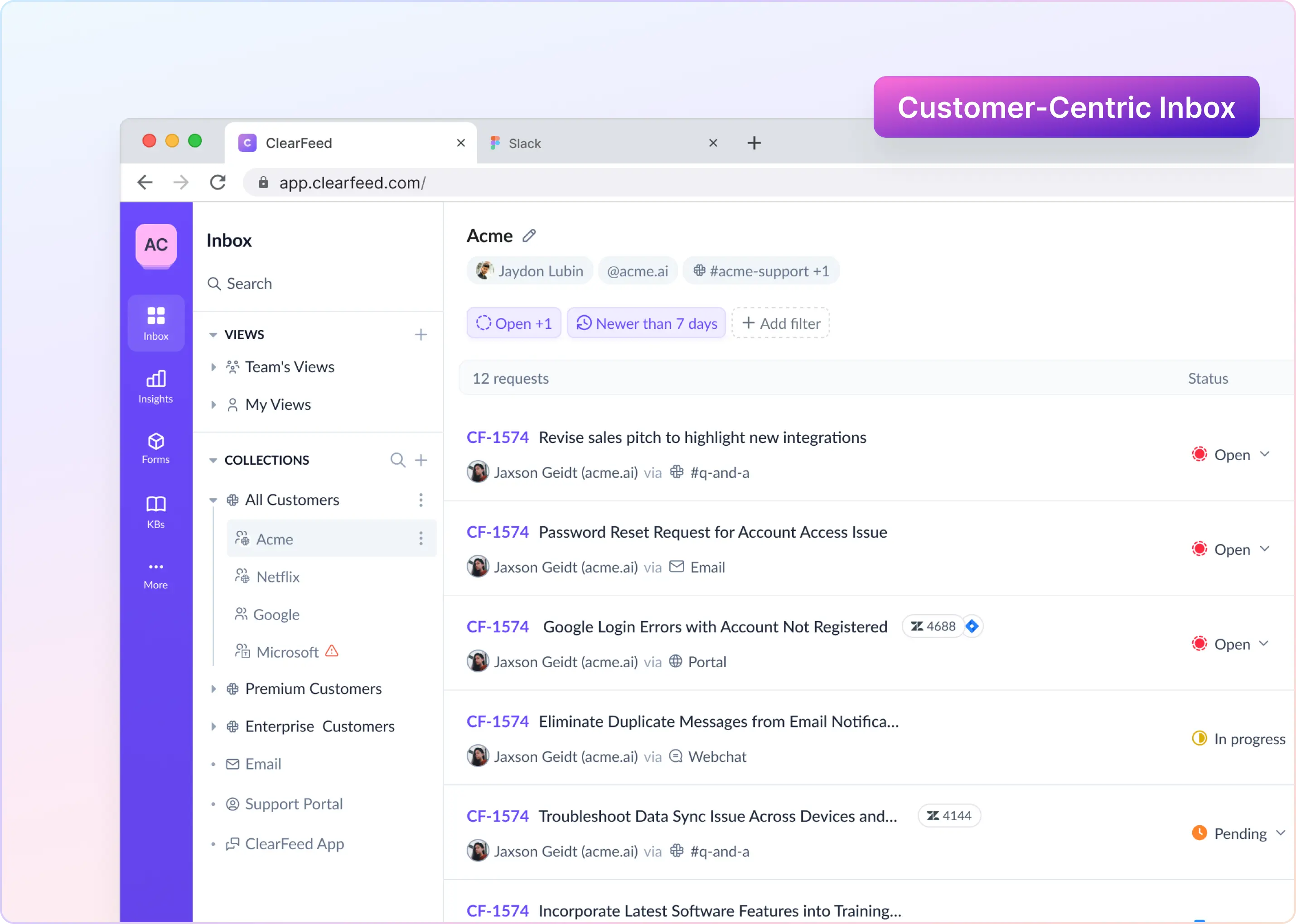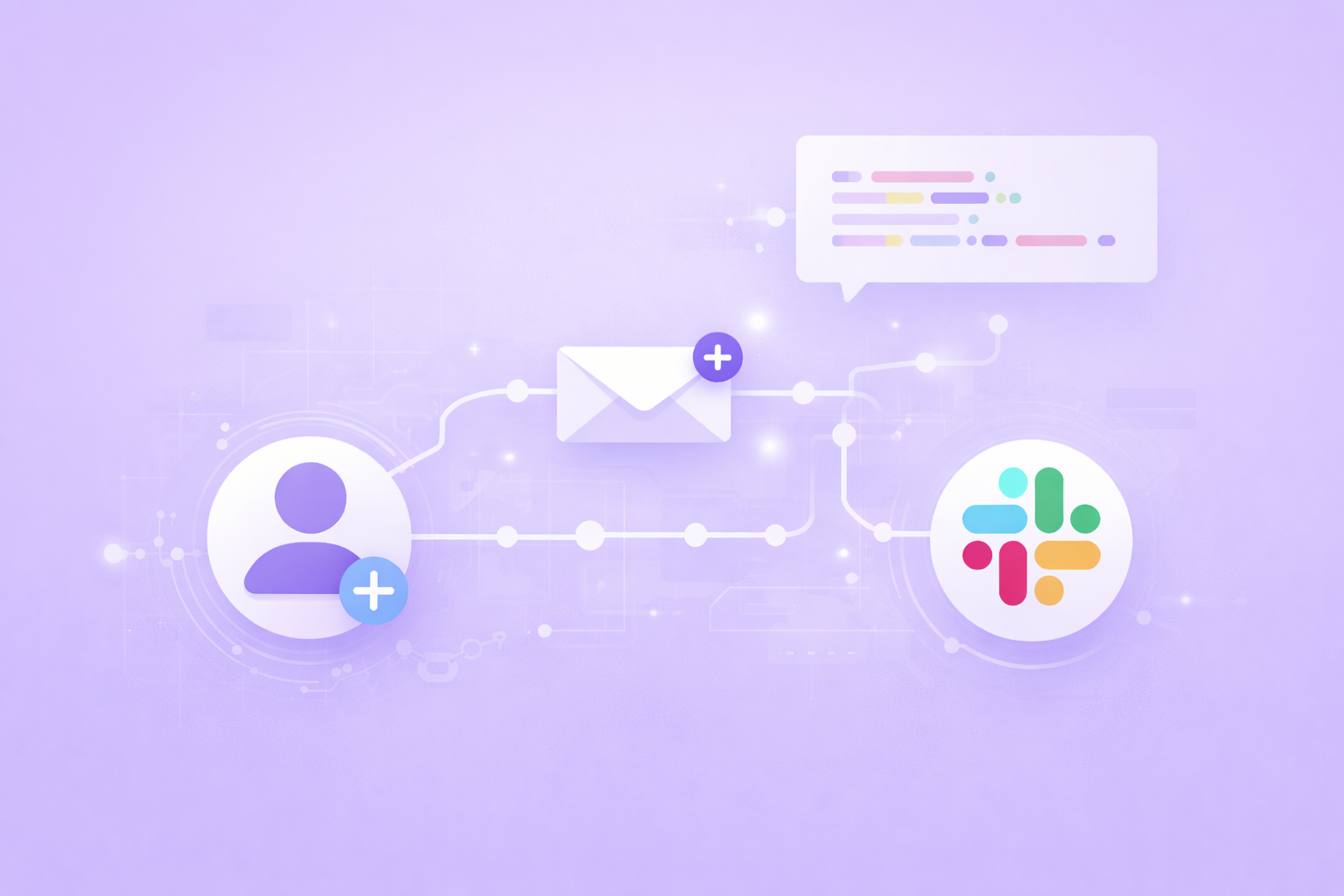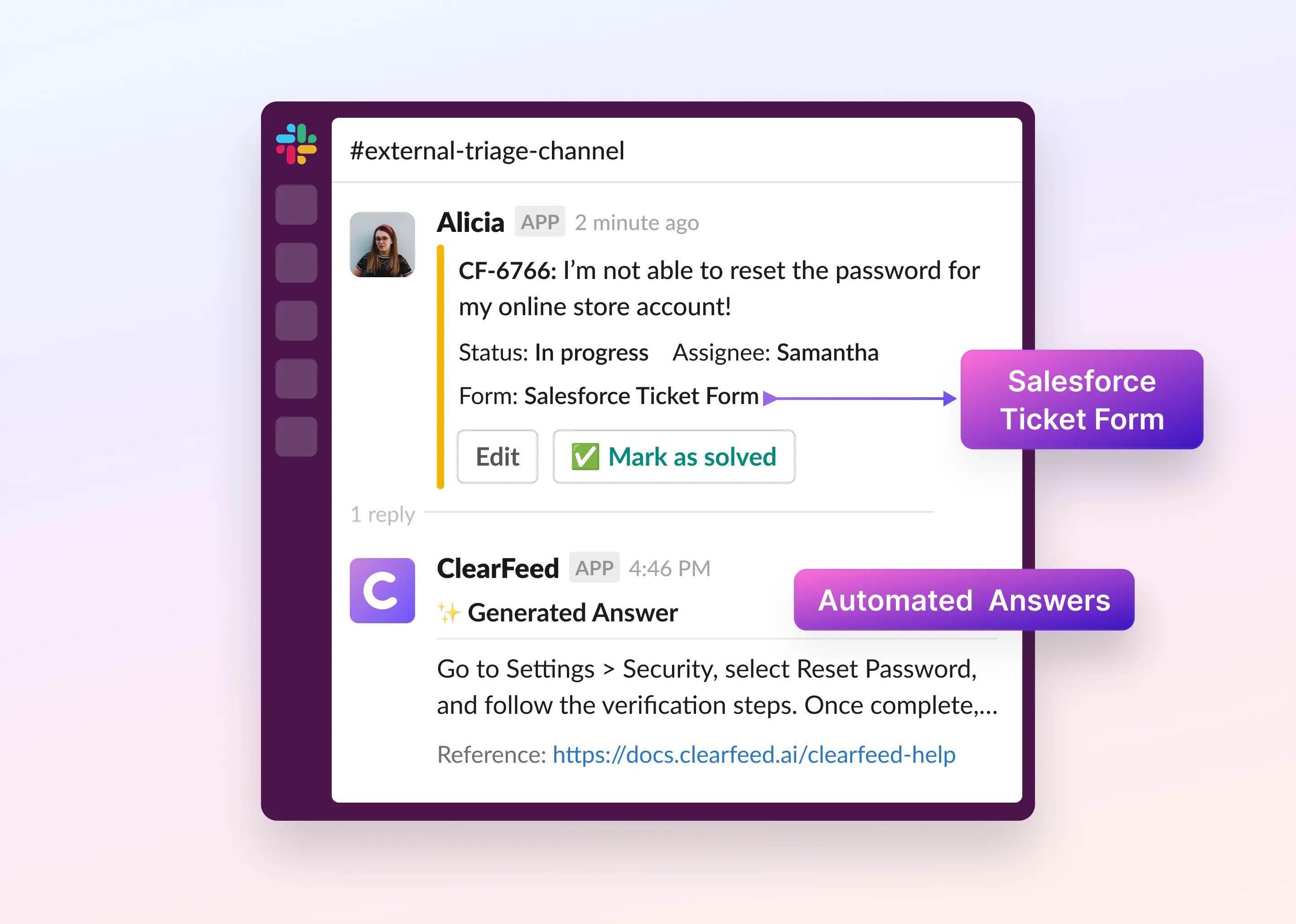Salesforce Service Cloud is a popular customer support platform packed with powerful features. It offers AI-powered automation to streamline workflows, omnichannel support to manage customer interactions across email, chat, and social media, and detailed analytics to track performance and customer satisfaction. These tools make it a go-to choice for many businesses looking to enhance their customer service.
However, not every business needs a solution this comprehensive. Some may prefer a more straightforward, cost-effective, or flexible tool that better fits their specific needs. If you're looking for a similar solution, this list explores the top Salesforce alternatives, highlighting their features, pricing, and user reviews. Let's get started.
How to Choose the Right Salesforce Service Cloud Alternative?
When searching for alternatives to Salesforce, it's important to consider a few key factors to find the best fit for your business. Here’s what you should keep in mind:
- Budget: Some tools charge per agent, while others base pricing on usage. Know your limits and what you’re willing to pay for.
- Features: Skip the extras you won’t use. Focus on core needs like ticket routing, automations, multi-channel support, and integrations.
- Scalability: Pick a tool that can handle growth, but doesn’t force you to upgrade just to unlock basic features.
- SaaS vs. On-Premise: Most modern support tools are SaaS — faster setup, less maintenance, and easier to scale. On-premise gives more control but adds overhead. Unless you have strict data or security requirements, SaaS is usually the better move.
- Comparing Integration: Your support tool shouldn’t live in a silo. Make sure it works with your CRM, Slack, email, and internal systems. The smoother the integration, the less manual work for your team.
- Customer Support and Onboarding: A tool is only as good as the support behind it. Look at how responsive vendors are, how much help they offer during onboarding, and how easy it is to get answers when things break.
Once you’re clear on these considerations, it’s easier to pick the best alternative that actually fits your team. Let’s compare the top Salesforce Service Cloud alternatives by pricing and features.
Best Salesforce Service Cloud Alternatives
Each of these tools brings something different to the table. Here's a comparison of some of the top Salesforce Service Cloud alternatives for support teams:
To make your decision easier, here is a more detailed comparison of top Salesforce alternatives:
1. ClearFeed

ClearFeed is built for modern support teams that work out of Slack. It helps manage customer conversations across Slack, MS Teams, email, web chat, and a self-service portal — all without forcing agents to switch tools.
While ClearFeed isn't a direct alternative to Salesforce Service Cloud, it’s a great add-on for teams who want a Slack-first workflow with powerful features like automation, ticketing, and analytics. It integrates smoothly with Salesforce Service Cloud, which allows teams to manage customer interactions in Slack while using all of Salesforce's capabilities.
Key Features:
- Omnichannel Support: Manage requests from Slack, MS Teams, email, web chat, and a customer portal– all in one unified queue.
- AI-Powered Assistance: Uses AI to automate ticket triaging and suggest solutions from existing documentation.
- Slack-Native Ticketing: Convert Slack threads into tickets with one click. Two-way sync with Zendesk, Freshdesk, Intercom, or other tools.
- GPT Virtual Agent: Suggest solutions from existing documents, such as PDFs or Notion, for deflection or as a support assistant.
- Salesforce Integration: Automatically creates Service Cloud cases directly from Slack threads and sync communication for better team collaboration.
- SLA alerts & Service Metrics: AI-based alerts in Slack before SLA breaches, plus detailed tracking of response times, sentiment, and CSAT.
For teams that use Slack and want to improve support workflows without the complexity of legacy systems, ClearFeed is the perfect choice.
To learn more about its features in action, book a free demo!
2. Zendesk

Zendesk is one of the most established customer service platforms in the market. It’s designed for high-volume support teams that need structure, automation, and robust reporting.
It supports every major channel and offers a wide range of tools for ticket management, AI automation, agent performance, and analytics.
Zendesk works best for larger teams that need an all-in-one suite and are ready to invest time and resources into setup and training.
Key Features:
- Help Center & Ticketing System: Track, assign, and resolve tickets with automation and workflows. Also, set up a self-service portal where customers can find answers and submit tickets.
- Messaging & Live Chat: Interact with customers through live chat, messaging, and automated bots. It provides real-time responses, enabling quicker resolutions.
- Voice Support: Built-in call center tools to handle phone support directly within Zendesk.
- AI and Automation: Use AI to suggest responses, route tickets, and handle basic queries. Deploy AI-powered bots for round-the-clock, automated support interactions.
- Agent Workspace: A unified view of each customer, combining tickets, interactions, and history in one place. Automatically assign tickets to the right agent based on skill or workload.
- Analytics and Reporting: Turn ticket and agent data into dashboards and reports to track performance.
Zendesk is feature-rich and built to scale, but it comes with complexity — best suited for teams that have the time, budget, and headcount to make the most of it.
3. Freshdesk

Freshdesk, developed by Freshworks, is a cloud-based help desk tool that balances ease of use with a solid feature set. It’s built for growing support teams that want to stay organized, automate repetitive tasks, and give customers self-service options.
With strong AI tools, multilingual support, and deep customization, it’s a flexible alternative for mid-sized to large teams.
Key Features:
- Unified Ticket Management: Handle all conversations from a shared inbox. Organize them using threads, tasks, and custom fields.
- AI-Powered Assistance (Freddy AI): Use Freddy AI for smart ticket triage, response suggestions, and customer-facing chatbots. Freddy AI Copilot also helps agents with prioritization, summaries, and reducing manual work.
- Advanced Reporting & Dashboards: Pre-built and custom dashboards show performance metrics, CSAT, SLAs, and agent availability. Go deeper with custom object analysis to track business-specific KPIs.
- Strong Self-Service Tools: Build knowledge bases, community forums, and multilingual portals. Customize branding, structure your content with flexible hierarchies, and enable customers to help themselves.
Freshdesk strikes a solid balance between usability and depth — a great fit for teams that want automation, AI, and customization without enterprise-level complexity.
4. Zoho Desk

Zoho Desk is a cloud-based help desk tool designed for teams that want flexibility, automation, and native integration with the broader Zoho ecosystem.
It covers all major support channels, includes strong AI features, and is especially attractive for businesses already using Zoho CRM or other Zoho apps.
Key Features:
- Built-In AI with Zia: Use Zoho’s AI assistant, Zia, to auto-tag tickets, detect anomalies, predict fields, summarize conversations, and suggest replies. Generative AI is also available for smarter agent assistance.
- Self-Service Tools: Set up branded knowledge bases, multi-brand help centers, guided conversations, and embeddable support widgets. Community forums are also included for peer support.
- Agent Productivity Features: Agents get tools like work modes, reply templates, ticket views, team collaboration, mobile access, and custom ticket layouts — all designed to improve speed and consistency.
- Automation & Customization: Automate ticket routing, escalations, SLAs, notifications, and workflows. Use Blueprint to design custom processes and extend functionality with APIs, SDKs, and integrations.
- Extensibility: Extend the help desk functionality through custom code, APIs, SDKs, and a marketplace with various extensions.
Zoho Desk is a strong pick for teams that want deep customization, AI-powered support, and tight integration with their CRM, especially if they’re already in the Zoho ecosystem.
5. HubSpot Service Hub

HubSpot Service Hub is built for teams that want support tools tightly integrated with sales and marketing. It combines help desk features with CRM-powered insights, automation, and AI to create a more connected customer experience.
Key Features:
- Help Desk & Automation: Manage tickets in an AI-enhanced workspace, automate repetitive support tasks, and use SLA tools to stay on top of response times and workloads.
- Self-Service Tools: Set up a knowledge base, a secure customer portal, and feedback surveys (NPS, CSAT, CES) to reduce ticket volume and improve the customer experience.
- Customer Success & Retention: Use health scores, product usage data, and proactive alerts to drive renewals, identify upsell opportunities, and prevent churn — all from the Customer Success Workspace (Beta).
- Conversation & Call Intelligence: Get AI insights from support calls, track performance trends, and uncover coaching opportunities to improve rep performance.
HubSpot Service Hub is a solid choice for teams already using HubSpot — combining support, CRM, and automation into one clean, connected experience.
6. Help Scout

Help Scout is a lightweight yet capable support tool focused on simplicity, collaboration, and a clean customer experience. It’s especially well-suited for small to mid-sized teams that want fast setup, strong self-service tools, and a shared inbox that feels more human than traditional ticketing systems.
Key Features:
- Shared Inbox with Collaboration Tools: Manage customer conversations in one place with features like private notes, @mentions, collision detection, and team workflows to avoid duplicated effort.
- Knowledge Base (Docs): Quickly create and manage self-service content with a built-in knowledge base. Includes search, article performance tracking, and easy publishing tools.
- Live Chat via Beacon: Offer real-time support through an embeddable widget that also surfaces relevant help articles. Customers can chat or submit questions directly from the widget.
- Reporting & Analytics: Use built-in dashboards or create custom reports to track team performance, customer behavior, and support trends over time.
Help Scout keeps things simple, clean, and collaborative — a great fit for teams that want reliable support tools without the bulk of traditional help desk software.
7. Intercom

Intercom is a modern customer support platform built around live chat, automation, and AI. It’s designed for fast-growing SaaS and tech companies that need high-touch support at scale.
With advanced messaging, in-product guidance, and AI tools, Intercom focuses on speed, personalization, and automation.
Key Features:
- AI-Powered Support Tools: Use the Fin AI Agent for automated frontline support, an AI Copilot to assist agents with suggested responses, and AI insights for managers to optimize workflows and team performance.
- Customizable Live Chat: Add real-time chat to your product or website with automated messages, targeted prompts, and trigger-based campaigns to improve engagement and conversion.
- Advanced Ticketing System: Handle complex support flows with a built-in ticketing system that supports collaboration, task assignment, and status tracking — without needing third-party tools.
- Self-Service + Product Tours: Offer a searchable help center for common questions, and use Product Tours to walk users through new features or onboarding directly inside your app.
- Apps & Integrations: No more separate tools or complicated integrations. Intercom has everything to improve productivity and offer personalized support.
Intercom is built for speed and scale — ideal for SaaS teams that want AI-driven chat and smart automation baked into the customer experience.
8. HappyFox

HappyFox is a cloud-based help desk platform designed for teams that want to streamline support through automation, task management, and easy-to-use ticketing tools.
It’s ideal for businesses looking for a clean interface, strong reporting, and customizable workflows without the clutter of bloated enterprise systems.
Key Features:
- Built-In Knowledge Base: Create and manage FAQ pages or help articles to reduce ticket volume and promote self-service support.
- Workflow Automation & Canned Actions: Save time with automation tools that handle repetitive tasks. Use canned responses for common questions and actions to speed up replies.
- Task & Team Management: Break down support requests into tasks, assign responsibilities, and manage workflows across teams to keep things moving smoothly.
- Reporting & Customer Feedback: Use detailed reports to track performance and customer satisfaction. Collect feedback through built-in surveys to improve support quality.
HappyFox keeps things structured and efficient — a solid pick for teams that want streamlined support, automation, and reporting without the complexity of heavyweight platforms.
So, these were the top Salesforce alternatives. But how can you tell if you should consider switching to one of them?
Who Should Consider Switching from Salesforce Service Cloud?
As discussed before, not every team needs the full weight of Salesforce Service Cloud. Here’s who might benefit most from switching to a simpler, more cost-effective alternative:
- Startups & SMBs: If you’re early-stage or running a lean support operation, you probably don’t need a complex, multi-layered platform. A simpler, more budget-friendly tool will be sufficient.
- Budget-Conscious Teams: Salesforce Service Cloud pricing can jump quickly, especially with add-ons or scaling. If cost control is a priority, switch to a platform with flexible pricing like ClearFeed.
- Teams That Want a Simpler UX: A support tool should speed things up, not slow you down. If your team struggles with clunky workflows or too many features you don’t use, it’s a sign to look for more user-friendly interfaces.
Key Takeaways
Most of the Salesforce alternatives listed above are powerful but come with complexity and high costs. As your team grows, you may find yourself pushed into higher pricing tiers simply to access basic features or handle increased volume, and that can add up quickly.
ClearFeed takes a different approach. It doesn’t charge you per agent just for showing up. Instead, pricing is based on how you actually use it, the number of tickets, Slack channels, and how many people are actively working on support.
No inflated plans. No paying for stuff you’re not using. Just a support tool that fits how your team works. Get a demo of ClearFeed today!



















